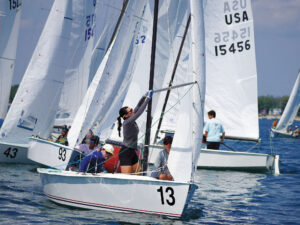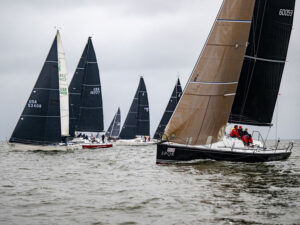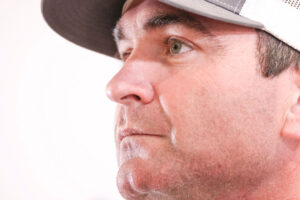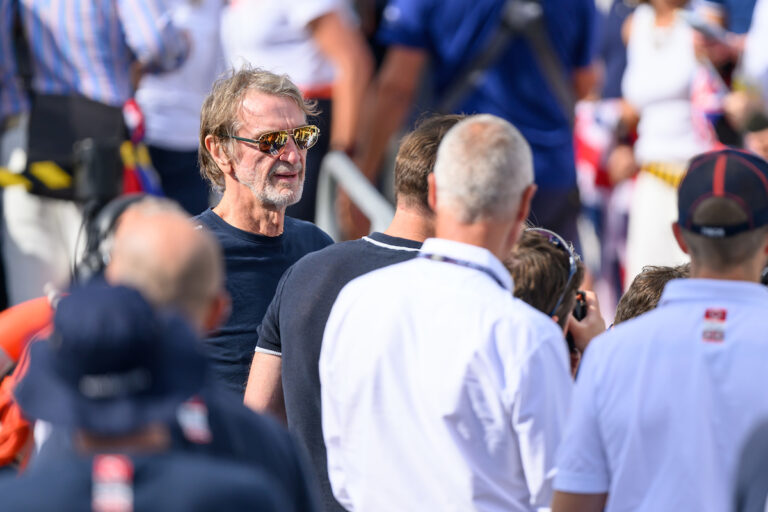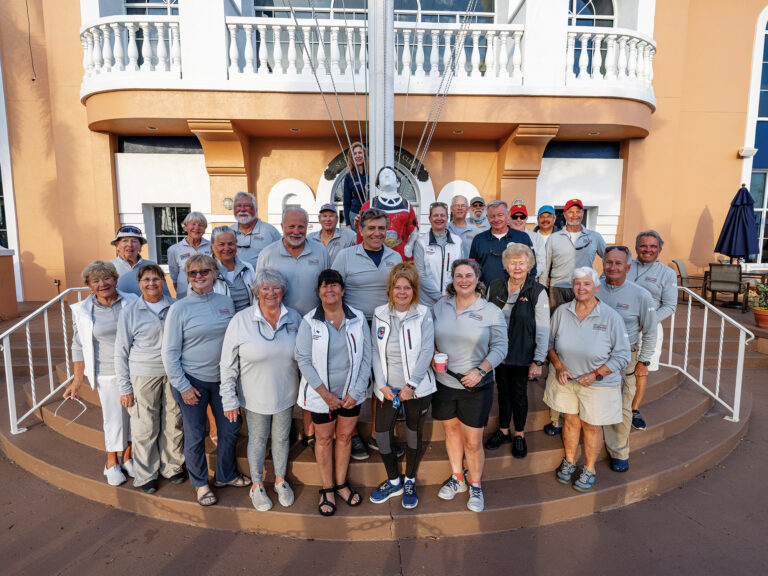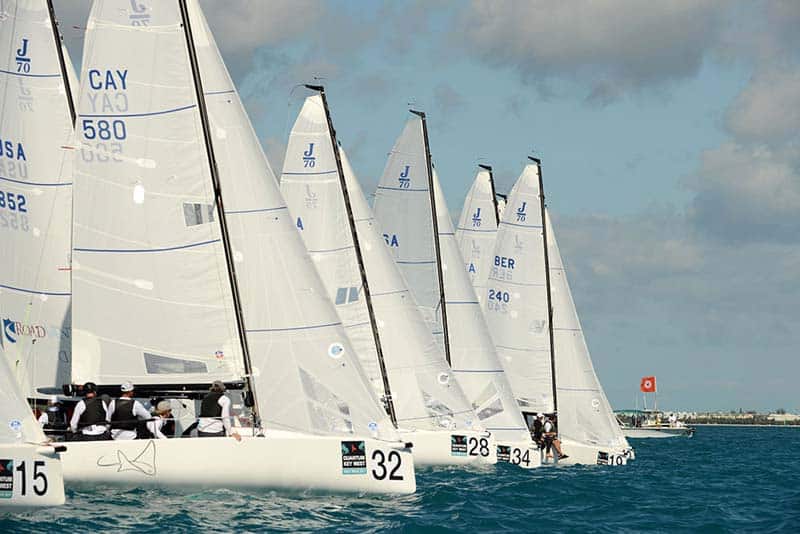
Sailing is an unforgiving sport, and those who are beating you have the things figured out more than you do. Simple. So if you find yourself not doing well in an event, identify your issues and seek out those doing well for intel. People love sharing sailing stories and information, especially when they are feeling good after doing well.
When figuring out your own issues, think in terms of starts, speed or tactics. Once you have identified your problems go find the best sailors in your fleet at the party or on the dock and pick their brain. It’s best to start with a genuine compliment to start the conversation, which should be easy because they’re beating you, right? Then ask them your questions about starting, speed, or tactics.
For example, here in the C&C30 fleet, Extreme 2 is much faster than the rest of the fleet upwind. So we approach them and ask how they are set up on their rig. After that, we move on to how they are trimming their sails, such as twist profile, lead position, main traveler car, and vang tension. Then go out the next day and try to improve on your settings from the day before.
Another great question to ask, and one often saves time is, “Why do you think you are so much faster upwind?” That often cuts to the chase. Or you can ask, “Why do you think your starts are so much better?” Typically, if you’re winning, you know why, so when asking those beating you how they’re doing it you often get the best and most straight-forward answers.
Aside from actual settings, sailing is really cool in that usually the focus of someone who is beating you is much different than yours. And a shift in thinking can make all of the difference by making you focus on something that matters more. For example, the Extreme 2 team told us their main focus is on sailing fast, .2 knots over targets in the lumpy conditions here. While doing so they are trying not to heel over more than 21 degrees. Those are their two main thoughts. The boats tend to stall out when dropping below targets and or slip sideways with more than 21 degrees of heel. So they are thinking, “put the bow down to go super fast, but don’t heel over too much to get there.” This thought process helps them design their whole set up.
For example, if sailing along and getting slow, while also being heeled — say around 20 degrees — ease sails when putting the bow down to get two-tenths faster while not increasing heel, then once going fast, head up a touch and trim in to sustain the speed. But if you happen to be slow and not too heeled, say you are at 15 degrees heel, feel free to press the bow down some and heel over a little to get the speed without having to ease sails. As long as you don’t heel more than 21 degrees you are fine.
Another example is with tactics. I recently finished fourth at the Melges 20 Worlds in Italy calling tactics for Liam Kilroy. The winning tactician, John Kostecki aboard Pinta with Michael Illbruck, did a really nice job at that event going the right way 95 percent of the time. I felt like I did a nice job going the right way about 90 percent of the time, but not enough to win. Last night I approached him at the party and asked him what he was thinking during the event, tactically. He told me having sailed there in the past he remembered when in doubt go right.
I found that interesting because we had won the Russian Nationals the weekend before the worlds in the same venue and the left was favored the whole time. The wind was slightly left compared to the worlds, but “left” was so strong for that event I had left on the brain. With the wind more to the right, John showed up after the Russian Nationals and had right on his brain, and it served him very well. After Day 1, when John got a 7,1,1 by playing the right, the points gap had formed and was impossible to overcome. Something as simple as, “when in doubt head right” allowed him to be more accurate tactically.
The point its, don’t be afraid to seek out those doing better and chat them up. You will not only learn, you will most likely make a friend as well. There’s plenty of opportunities to do so in Key West.

